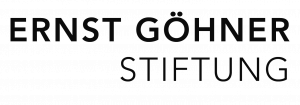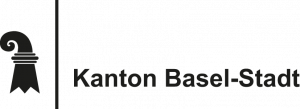It has been almost two years since reports from the intensive performance centre of the Swiss Gymnastics Association in Magglingen served as a wake-up call for the Swiss public. Under-age female athletes recounted stories of unsustainable training methods and psychological violence. To put themselves in a better position to protect all athletes, the federal government and the athletic associations are seeking to put sweeping measures into place. One of these involves the creation of an independent central reporting office covering the full range of sports in Switzerland. On 1 January 2022, the Swiss Sport Integrity advice centre commenced operations.
An appropriate reporting centre to ensure children’s rights
Die Ombudsstelle Kinderrechte Schweiz begrüsst die nationale Meldestelle sehr und befürwortet die Schaffung einer rechtlichen Grundlage dafür. Insbesondere Minderjährigen kommt im Sport eine vulnerable Position zu; aufgrund ihres Alters, dem Machtgefälle zwischen Trainer:innen und Sportler:innen und der vielen Zeit, die sie beim Sport verbringen. Die unabhängige Meldestelle ist deshalb gerade für sie ein wichtiger Schritt zu mehr Fairness und Schutz im Sport. Dies wird aber nur gewährleistet, wenn es für Kinder und Jugendliche selbst möglich ist, eine Meldung zu erstatten. Es darf nicht davon ausgegangen werden, dass sie Unterstützung von ihren Eltern oder dem weiteren Umfeld erhalten. Häufig setzen gerade die Eltern zusätzlichen Druck auf und stellen die sportlichen Erfolge vor die Interessen der Kinder. Die Website von Sport Integrity muss somit zwingend kindgerecht sein. Eine Meldungserstattung muss unkompliziert und verständlich sein.
Sharing practical knowledge, achieving fairness for childre
At the Swiss Ombuds Office for Children’s Rights, we have learned from our daily intermediations that it is essential to set a very low reporting bar and that this absolutely requires that our information be made available in a manner suitable for children. This also applies to all the processes that follow. Like adults, children and youth must be kept informed about next steps. Thus, the provision of child-oriented informational material and knowledge concerning age-appropriate intermediation is also required here. Accordingly, this calls for the inclusion of relevant language in the Sports Promotion Act (SpoFöV) to provide clear guidance to the reporting office tasked with generating such materials
Expert advisors: training and inter/multi-disciplinarity
It is similarly important for professionals, especially those charged with receiving such reports, to have specific training. First, they must be knowledgeable concerning dealings with minor athletes – specifically, with developmental psychology, techniques for conversing with children and managing conflict, and how to understand their own role. They will also need, however, skills for dealing with any traumatised victims they encounter.
It is likewise essential that the reporting centre be able to rely on an interdisciplinary team, especially one with legal, psychological and medical representation. On one hand, this simplifies triage to the appropriate specialists. On the other, it is important for achieving a broadly based discussion of these cases, and it serves to eliminate any conflicts of interest.
What happens in the event of a crime?
What occurs if the reporting office becomes aware of circumstances that may indicate a criminal offence and/or a chargeable crime? Does the centre inform the appropriate law enforcement authorities? Or does this go unreported? Either way, it is vital that victims be given appropriate and comprehensive advice concerning the criminality of the case involving them. Reporting centre staff must have the appropriate expertise to assess whether a case has criminal relevance. If a triage is to take place in such cases, sufficient legal expertise must be on hand to make such a determination.
How independent is the reporting office?
While the Swiss Sport Integrity Foundation is independent, conflicts of interest between the Federal Government and the Swiss Olympic Committee centre on how to agree the roles of each entity. If a decision involves whether a situation should be reported to the appropriate authorities or triaged to other experts, however, we see a fundamental problem in resolving the matter entirely within the organisation. It does not and should not fall to a reporting office to determine how to take further measures. Instead, the reporting office should have the obligation to refer the reporting individual – especially when this person is in fact the victim – to competent specialists. Such a procedure would ensure that these individuals receive the information necessary to continue with further proceedings and/or receive assistance regardless of the existence of a report to Swiss Sport Integrity. Moreover, with respect to the initial intermediation, we regard it as absolutely necessary that this be dissociated from Sports Integrity to allow specialists to prove intermediation comprehensively and in the absence of conflicts of interest in order to avoid the risk of setting up a parallel system of justice. In the same manner as the report itself, the initial intermediation should have a low threshold and be pitched to children. In other words, information provided in such settings must be immediately apparent. Even where a subject initially hesitates to file a report, an initial reporting centre can serve as a reassurance, in this way ensuring the availability of the legal system to a child.
Promotion or overload?
Whether in competitive athletics or hobby sports, child athletes frequently tread a fine line between promotion and overload. Is it still fun for the child? Do children practise their sport out of joy and personal pride or to please their parents or coach? The evidence from the Magglingen files has only begun to be released, and yet reports are accumulating concerning abuse in renowned performance schools. It is becoming increasingly clear that these sporting conditions of questionable legality under children’s law are not limited to just a small number of areas. Paying close attention, making rigorous inquiries and courageously intervening with all those affected are factors that constitute the basis for achieving a sports environment that is appropriate for all children.
Sensitising, not bureaucracy
Regarding the Swiss Sport Integrity advice centre, those of us at the Swiss Ombuds Office for Children’s Rights also make the case for sensitisation in place of bureaucracy. In principle, we support the formation of a tie to government financing and the notion that violations against ethical principles can result in subsidies being cut. Sensitisation is the best prevention, however.
Training for trainers
In our view, thinking should focus on protection and sensitisation. We would find it a welcome change if sports promotion were to concentrate more on practicality and sensitisation than on sanctions. For example, if the Sports Promotion Act (SpoFöV) were to mandate sensitivity training for trainers and coaches, or if they were required in principle to submit to a criminal background check. A significant early step in this direction has been taken by the IdéeSport Foundation, which has promoted practical and highly effective measures to protect the well-being of children. Developed over the past thirty years, these concepts have been adapted to target groups. We are happy to refer our readers to IdéeSport’s advocacy for non-organised sports to be included under this act.









